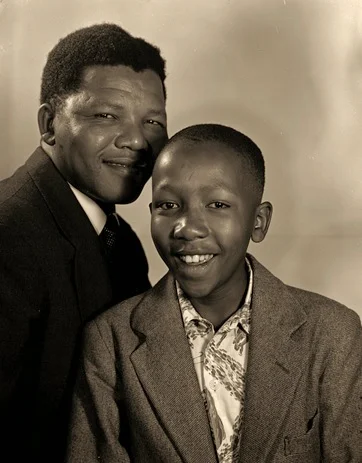African Independence Dates — Nations, Colonizers and Freedom
Listing of African independence dates from colonization and information about independence from foreign powers.

Education is the key that unlocks any door.
African independence movements peaked during the 1960s, reshaping global politics as nations broke free from European colonial powers.
African Independence From Colonization — Official Dates
Algeria — After more than a century of French rule, Algeria won independence in 1962 following a long liberation war.
Angola — Portuguese explorers arrived in 1483; Angola finally gained independence from Portugal in 1975.
Benin — Former Dahomey gained independence from France in 1960 and changed its name to Benin in 1975.
Botswana — Former British protectorate Bechuanaland became Botswana in 1966.
Burkina Faso — Former Upper Volta gained independence from France in 1960 and was renamed Burkina Faso.
Burundi — Gained independence from Belgium in 1962 as the Kingdom of Burundi.

Cameroon — Formerly under Portuguese, German, British and French rule; French Cameroon became independent in 1960, Northern Cameroon joined Nigeria in 1961.
Central African Republic — Independence from France in 1960.
Chad — Independence from France in 1960.
Comoros — Anjouan, Moheli, and Grande Comore gained independence from France in 1975.
Congo (Brazzaville) — Independence from France in 1960.
Côte d'Ivoire — Independence from France in 1960; requested to use official name Côte d'Ivoire in 1985.
Democratic Republic of Congo — Independence from Belgium in 1960; Mobutu era (Zaire) ended 1997.
Djibouti — Former French Territory of the Afars and Issas, independence in 1977.

Egypt — Declared a republic in 1953 after overthrowing monarchy; long history of foreign rule (Assyrian, Persian, Roman, Ottoman, British).
Equatorial Guinea — Spanish colony until independence in 1968.
Eritrea — Italian colony, then British admin; federated with Ethiopia 1952; full independence in 1993.
Ethiopia — Maintained independence except brief Italian occupation 1936–41.
Gabon — Independence from France 1960.
The Gambia — Independence from the UK in 1965; smallest mainland African nation.
Ghana — First sub-Saharan colony to gain independence in 1957 from Britain.
Guinea — Independence from France in 1958.
Guinea-Bissau — Liberation war 1963–74; Portugal recognized independence in 1974.
Kenya — Independence from Britain 1963 under Jomo Kenyatta.

Lesotho — Independence from UK 1966.
Liberia — Independent republic since 1847 (founded by freed African Americans).
Libya — Italian colony; independence 1951; Gaddafi seized power 1969.
Madagascar — Independence from France June 26, 1960.
Malawi — Former Nyasaland, independence 1964, republic 1966 under Hastings Banda.
Mali — Independence from France 1960.
Mauritania — Independence from France 1960.
Mauritius — Dutch → French → British; independence from UK 1968.
Morocco — Independence from France and Spain 1956.
Mozambique — Liberation war against Portugal; independence 1975.
Namibia — Former South West Africa under South Africa; independence 1990.
Niger — Independence from France 1960.
Nigeria — Independence from Britain 1960.
Cabo Verde — Independence from Portugal 1975.
Rwanda — German → Belgian rule; independence 1962.
Sao Tome and Principe — Portuguese slave-trade outpost; independence 1975.
Senegal — Independence from France 1960.
Seychelles — Independence from UK 1976.
Sierra Leone — Independence from Britain 1961.
Somalia — Independence 1960 (merger of British and Italian Somaliland).

South Africa — Union 1910; apartheid 1948; majority rule 1994 after Nelson Mandela’s release.
South Sudan — Voted 99% for independence from Sudan, became independent 2011.
Sudan — Independence from Britain/Egypt 1956; split with South Sudan 2011.
Eswatini — (Former Swaziland) Independence 1968; renamed 2018.
Tanzania — Tanganyika + Zanzibar merger 1964 under British/Arab/German colonial history.
Togo — Independence from France 1960.
Tunisia — Independence from France 1956.
Uganda — Independence from Britain 1962.
Zambia — Former Northern Rhodesia; independence from UK 1964.
Zimbabwe — Former Rhodesia; independence after war and sanctions 1980.
FAQ — African Independence
Which African country was the first to gain independence in the modern era?
Liberia became independent in 1847, but Ghana (1957) was the first sub-Saharan colony to achieve independence from Europe in the 20th century.
Which colonial power ruled most of Africa?
France and Britain controlled the largest territories; Portugal, Belgium, Germany, Spain, and Italy also colonized parts of Africa.
Why did so many African nations gain independence in the 1960s?
After World War II, anti-colonial movements grew stronger, European powers weakened economically, and global pressure favored self-determination.
Which was the last African country to gain independence?
South Sudan became Africa’s newest country on July 9, 2011.
More thought-provoking African history articles:

